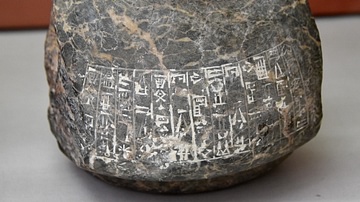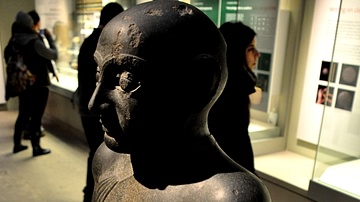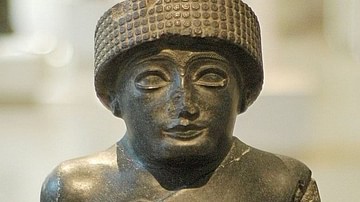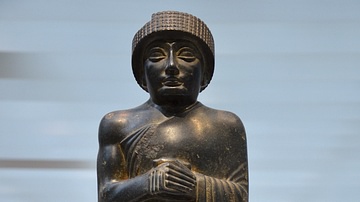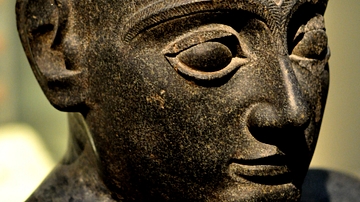Illustration
Each peg has a very faint cuneiform inscription of Gudea, the ruler of the city-state of Lagash.
Foundation pegs were buried in the foundation of buildings to magically protect them and preserve the builder's name for posterity. In this case, the peg is supported by a god (Mesopotamian gods are usually depicted wearing horned headdresses).
Kingdom of Lagash, c. 2130 BCE. Possibly from Tello (ancient Girsu), Temple of Ningirsu, southern Mesopotamia, Iraq. (The British Museum, London)
About the Author
Cite This Work
APA Style
Amin, O. S. M. (2014, March 31). Copper alloy foundation figurines with pegs representing Gods. World History Encyclopedia. Retrieved from https://www.worldhistory.org/image/2451/copper-alloy-foundation-figurines-with-pegs-repres/
Chicago Style
Amin, Osama Shukir Muhammed. "Copper alloy foundation figurines with pegs representing Gods." World History Encyclopedia. Last modified March 31, 2014. https://www.worldhistory.org/image/2451/copper-alloy-foundation-figurines-with-pegs-repres/.
MLA Style
Amin, Osama Shukir Muhammed. "Copper alloy foundation figurines with pegs representing Gods." World History Encyclopedia. World History Encyclopedia, 31 Mar 2014, https://www.worldhistory.org/image/2451/copper-alloy-foundation-figurines-with-pegs-repres/. Web. 19 Apr 2025.




